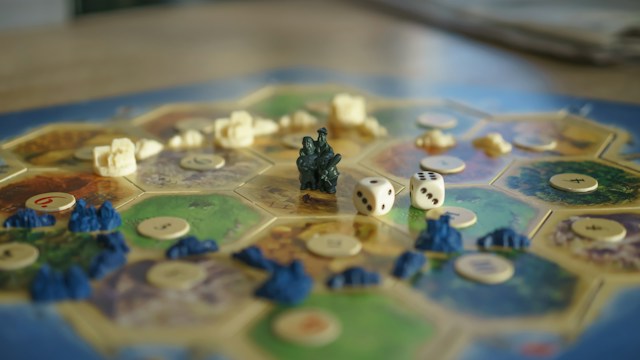Board games provide a platform to practice and enhance many social skills needed for healthy relationships. They help children (and adults) learn to communicate verbally, interact with others, and take turns.
With new technologies, they can even connect people from different locations, fostering friendships and building stronger relationships.
Creating a Warm and Inclusive Environment
Board games encourage players to interact with each other in a socially inclusive environment that provides the opportunity for positive communication, learning, and growth. They help to fulfill the innate needs of competence, autonomy, and relatedness, which promote internally regulated sources of motivation and an intrinsic desire to engage in the activity.
Children, especially those who are shy or have communication difficulties, can benefit from the social interaction of playing a game. Communicating with others while playing a game and anticipating their moves allows them to develop language skills such as turn-taking, listening, articulation, and comprehension.
Moreover, the sense of achievement and satisfaction achieved when playing a game can help reduce stress. It also offers a healthy outlet for competitive spirit and teaches players to be fair in their interactions with other players. Children can become better sportspeople and develop Emotional Intelligence (EQ) by learning how to win and lose in a safe environment. Many interactive board games offer online multiplayer options that further foster the development of social interaction and relationships between players from different locations.
Shared Experiences
The shared experiences from playing board games bring friends and families together for conversations, connections, and laughs. In a world where digital distractions erode social interaction, board games allow people of all ages to connect and have fun with each other.
While some board games are competitive, most require players to work together towards a common goal. This fosters collaboration and teamwork skills, which are beneficial in all areas of life.
In addition, many of the tasks in a board game involve risk and uncertainty. This encourages the players to think critically, plan, and develop strategies. It also helps players to develop patience and perseverance. For example, if they don’t win the first time they play, they can learn to keep trying instead of stomping off and slamming their bedroom door. This is an important lesson that everyone needs to know.
Fostering Teamwork
Board games provide a platform to foster teamwork that transcends age, gender, and culture. As players work together to solve puzzles, overcome challenges, and win the game, they learn how to support each other and build camaraderie.
Moreover, many modern board games require teams to narrate their actions and share information to help the group understand what’s happening. This encourages collaborative communication skills and teaches players to listen to different perspectives.
However, it’s important to remember that a team-building board game is still a workplace activity and will be more of an icebreaker than a fun social occasion. To ensure that your team is fully engaged, choose a game that requires critical thinking and emphasizes skill over luck. Also, avoid games that are heavily dependent on dice rolls. These can feel arbitrary and reduce engagement. Instead, opt for a game like Letter Jam that uses wordplay and deduction to promote teamwork.
Enhanced Communication Skills
Playing board games with a group requires communication and collaboration. Questions about strategy, discussions on memories associated with particular game pieces, and even debates on the rules can all lead to solid conversations that encourage team bonding. In addition, many games present challenging scenarios or puzzles that challenge players to think outside the box and develop creative solutions. These problem-solving skills are invaluable in the workplace, allowing teams to understand better and resolve issues.
The interactive nature of board games keeps players engaged throughout the game. Whether they are rolling dice, moving their game pieces, or making decisions, they directly impact the outcome of the game and a sense of accomplishment when they beat their opponents. This sense of intrigue and engagement can also benefit people who struggle with social anxiety or other mental health issues, as it allows them to interact with others in a low-pressure setting.

